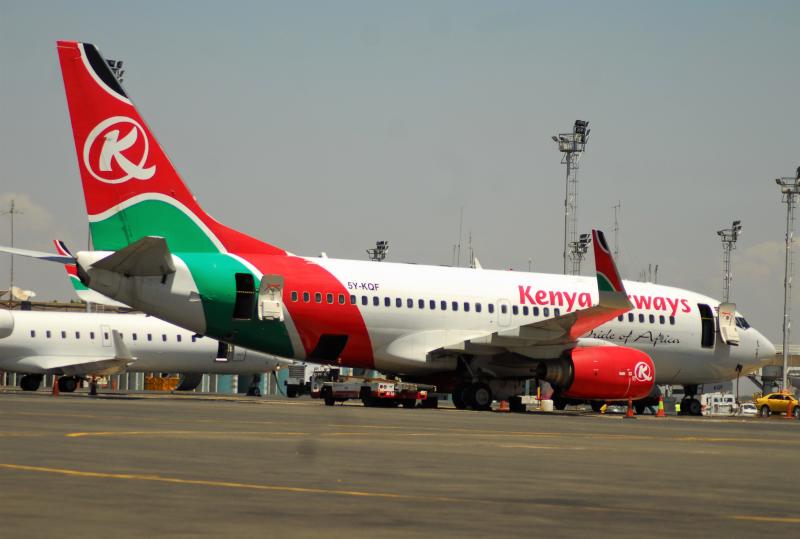Kenya Airways planes at Jomo Kenyatta International Airport (JKIA), Nairobi [Boniface Okendo, Standard] The classic investment philosophy is to invest in companies that are beaten down but with the hope that they will bounce back.
That was the thinking of investors who between March 25, 1996 and April 1996 agreed to buy into Kenya Airways (KQ) when the government sought to sell a 51 per cent stake.
The 59-paged prospectus, issued on March 22, 1996—exactly 26 years ago today— valued each of KQ’s shares at Sh11.25. The offer price put KQ’s worth at Sh5.19 billion.
Today, the share is suspended from the Nairobi Securities Exchange (NSE). And it will remain so until January 5 next year. It was valued at Sh3.83 per share when it last traded on July 2, 2020.
It is a case of trapped investors as the airline’s strategy takes twists and turns, sometimes opting to grow by shrinking and other times by expanding.
In between the shifting strategic direction are bulging losses, debts and empty pockets for shareholders amid State bailouts reminiscent of the 1994 and 1995 events that preceded the national carrier’s listing on the Nairobi bourse.
From increasing flights and routes to trimming them down, and now from privatisation to planning nationalisation and then dropping the plan, KQ’s strategy has not been pointing anywhere in particular. It has been a losing streak all through.
For investors who in 1996 walked into Citibank Kenya, Barclays Bank (now Absa), Commercial Bank of Africa, Co-operative Bank of Kenya, KCB, National Bank, Standard Chartered Bank of Kenya and the now-defunct Trust Bank to borrow money to buy KQ shares, they can only look back with regret.
Trading of shares on the NSE started in June 1996 with 113,000 shareholders, making KQ the firm with the largest number of shareholders in a publicly quoted company in East Africa at the time.
In 1997, a year after listing, the shareholders toasted to their decision to buy into a national carrier by receiving Sh346 million as dividends from an airline that had previously been in losses and, therefore, not paying any dividends.
Between 1997 and 2012, KQ was always paying dividends, save for 1999. This was music to investors’ ears. They just did not know the deejay would soon put on unfamiliar music. In 2013, they were thrust into the 1999 moment when there was no dividend. And they have been there ever since.To make it worse, KQ shares are […]
